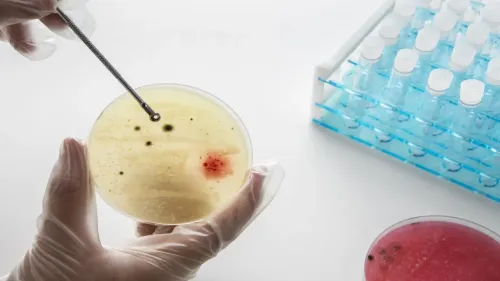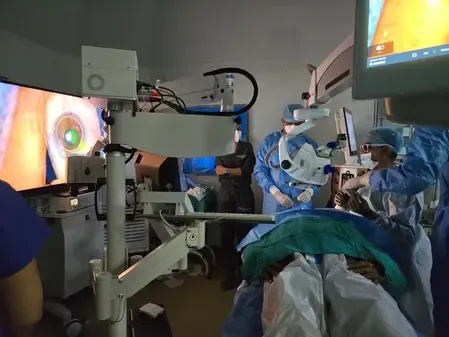Research Uncovers Mechanisms Behind Chemotherapy Resistance in Certain Cancers

Synopsis
Key Takeaways
- Understanding ROS pathways is crucial for cancer treatment.
- Mutations in VPS35 can lead to chemotherapy resistance.
- Low ROS levels are essential for normal cell function.
- Higher VPS35 levels in tumours correlate with better treatment outcomes.
- Research aims to improve treatment response in resistant cancers.
New Delhi, March 29 (NationPress) - A study conducted by researchers in the United States has shed light on how chemotherapy resistance can develop in some cancers, marking a significant step towards identifying tumours that resist treatment.
Chemotherapy resistance presents a significant hurdle in cancer care, as it occurs when cancer cells become unresponsive to chemotherapy, enabling the tumour to regrow.
The research team at Mass General Brigham concentrated on a pathway that utilizes reactive oxygen species (ROS) to eliminate cancer cells. Their findings, published in the journal Nature, revealed that mutations in VPS35—a crucial component of this pathway—can inhibit chemotherapy-induced cell death.
“ROS are vital for both healthy and diseased cells, yet the pathways that detect and regulate cellular ROS levels remain largely unexplored,” explained corresponding author Liron Bar-Peled from the Krantz Family Center for Cancer Research.
“A deeper comprehension of ROS could illuminate why some cancers develop chemoresistance.”
While low ROS levels are necessary for normal cellular communication, elevated ROS can harm cells and contribute to conditions like cancer and neurodegeneration.
Prior research has indicated the significant role of mitochondria in ROS production, but it has remained uncertain whether ROS-sensing proteins affect mitochondrial function. If they do, this could influence responses to certain anti-cancer therapies.
To explore this, the research team screened cancer cells for ROS-sensing proteins that may play a role in chemoresistance.
They discovered mutations that heightened treatment resistance, tracing two of these mutations back to the VPS35 protein. Additional investigations revealed that these mutations resulted in decreased ROS levels within the cancer cells.
Moreover, the team examined VPS35 expression levels in 24 patients diagnosed with high-grade serous ovarian cancer (HGSOC) who had received treatment at MGCC. They observed that elevated tumoral VPS35 levels correlated with enhanced treatment responses and better overall survival rates.










